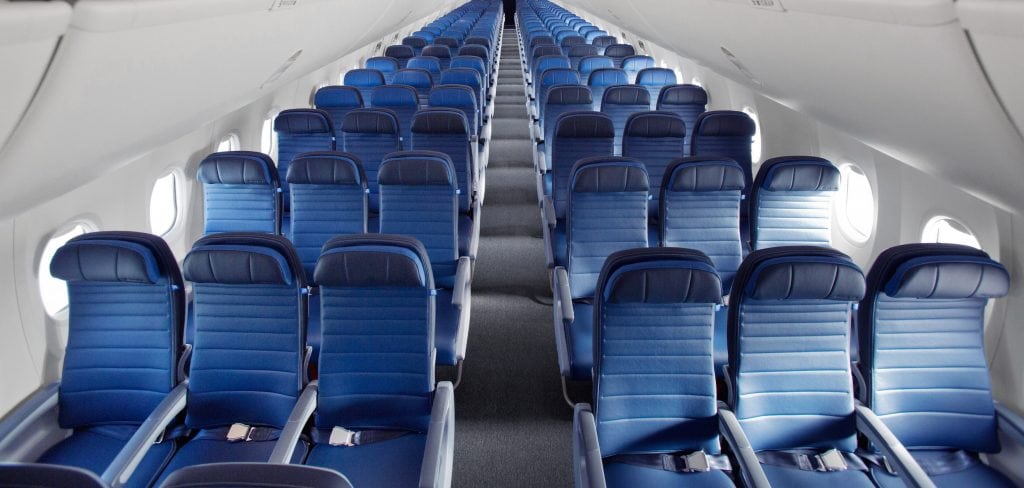United's New No-Frills Fare Won't Even Include Free Carry-ons

Skift Take
United Airlines on Tuesday unveiled a new, no-frills fare designed for the most cost-conscious customers that will come without many goodies passengers expect, including the right to choose a seat and put a suitcase or small duffel bag in the overhead bin.
The new fare, which United will sell in January for fights starting this Spring, is the carrier's response to competition from discounters Allegiant Air, Frontier Airlines, and Spirit Airlines. The three airlines often undercut legacy carriers on price, but they charge for nearly everything, such as seat assignments, carry-on bags, and even sodas.
About 85 percent of United's customers fly the airline once per year, President Scott Kirby said in October, and those passengers account for roughly half of company revenues. With its new bare-bones fares, United hopes to keep those customers from defecting to discount airlines.
But where once United suggested it might only implement the new fares on routes where it competes directly with low-fare operators, the airline now eventually expects to sell what it calls Basic Economy across the Continental United States and to Mexico and Central America, including between cities Allegiant, Frontier, and Spirit do not serve. Not all markets of United's markets will see the new fares at first, however.
United's version of Basic Economy is more draconian than Delta's, which four years ago became the first U.S. airline to sell basic fares to compete with discounters. Like Delta, United designed its fare to appeal to the most price-sensitive consumers, taking great care to make it as unpalatable as possible for business travelers. United wants business customers to continue buying more expensive fares with more perks.
American is also creating a discount fare, and while it should hit the market early next year, American has not said exactly what its version will include, or in what markets it will be sold.
Like Delta, United will ban customers who buy Basic Economy from selecting seats, or changing their tickets for any reason. Also, like Delta, United will not allow Basic Economy customers to upgrade into first class or extra legroom coach seats, even if they're elite frequent flier members usually entitled to those perks.
But United's fare will have two more limitations. Most customers who buy it will only be able to bring a small bag, such a laptop, messenger bag or purse, in the cabin. They will not even be allowed to pay a fee to stow a larger bag, as they can on Allegiant, Frontier, and Spirit, though at United, that might change over time. However, elite members of United's frequent flier program, as well as United's credit card holders, still will be able to bring a large carry-on and put it in the overhead bins. None of the other U.S. legacy or low cost carriers charge any customers for carry-ons.
In addition, when consumers buy United's new cheap fares, they will not be able to accrue miles to reach the elite levels of the airline's frequent flier program. Today, a customer flying from Los Angeles to Chicago is awarded 1,745 miles toward an elite status — 25,000 miles per year earns a passenger membership at United's Premier Silver level — regardless of how much that passenger has paid. But, unlike at Delta, a customer who buys the new United fare will receive no credit toward elite frequent flier status.
Customers on the cheapest fares will still receive some extras. They will continue get frequent flier miles to use toward free travel, though since the cheapest fares already earn few miles, customers will need to book a lot of discounted trips before they can redeem them.
And on the plane, passengers will be treated like everyone else. They will still get a free drink and snacks — a stroopwafel in the morning, or a snack mix in the afternoon — and they'll have access to the same free movies and TV shows as everyone else on the flights equipped with entertainment.




